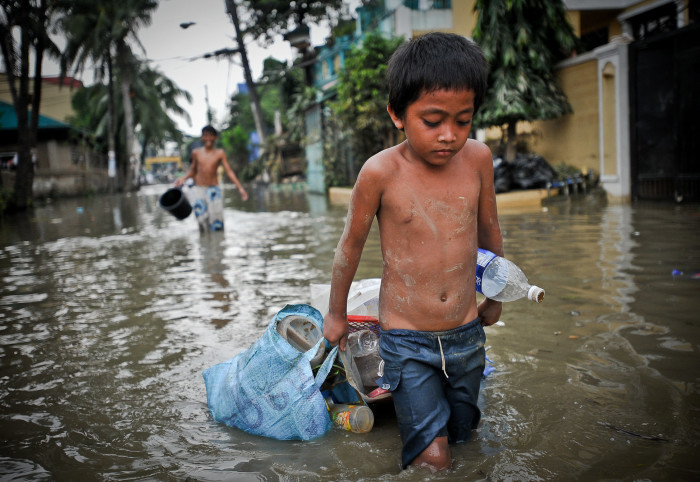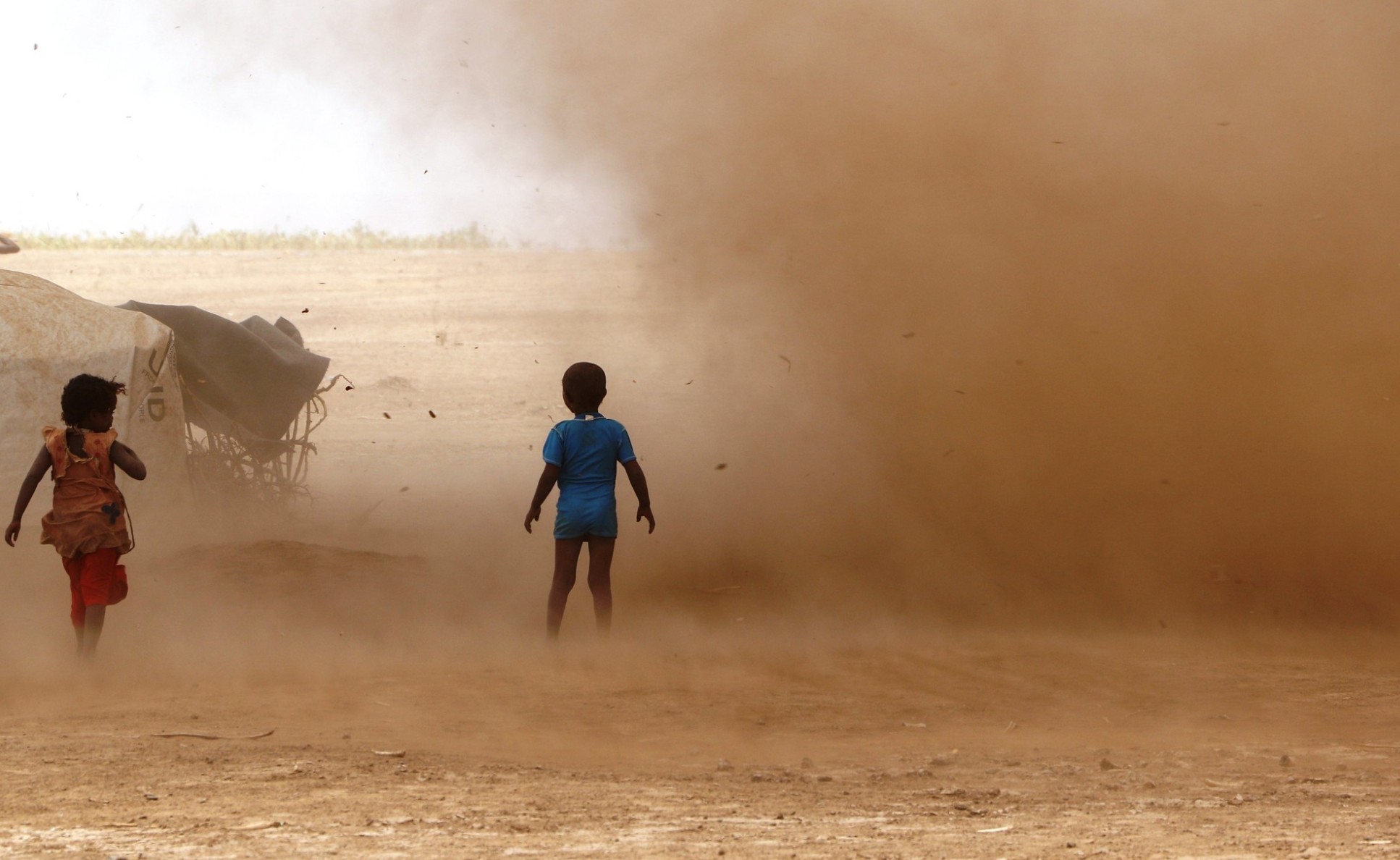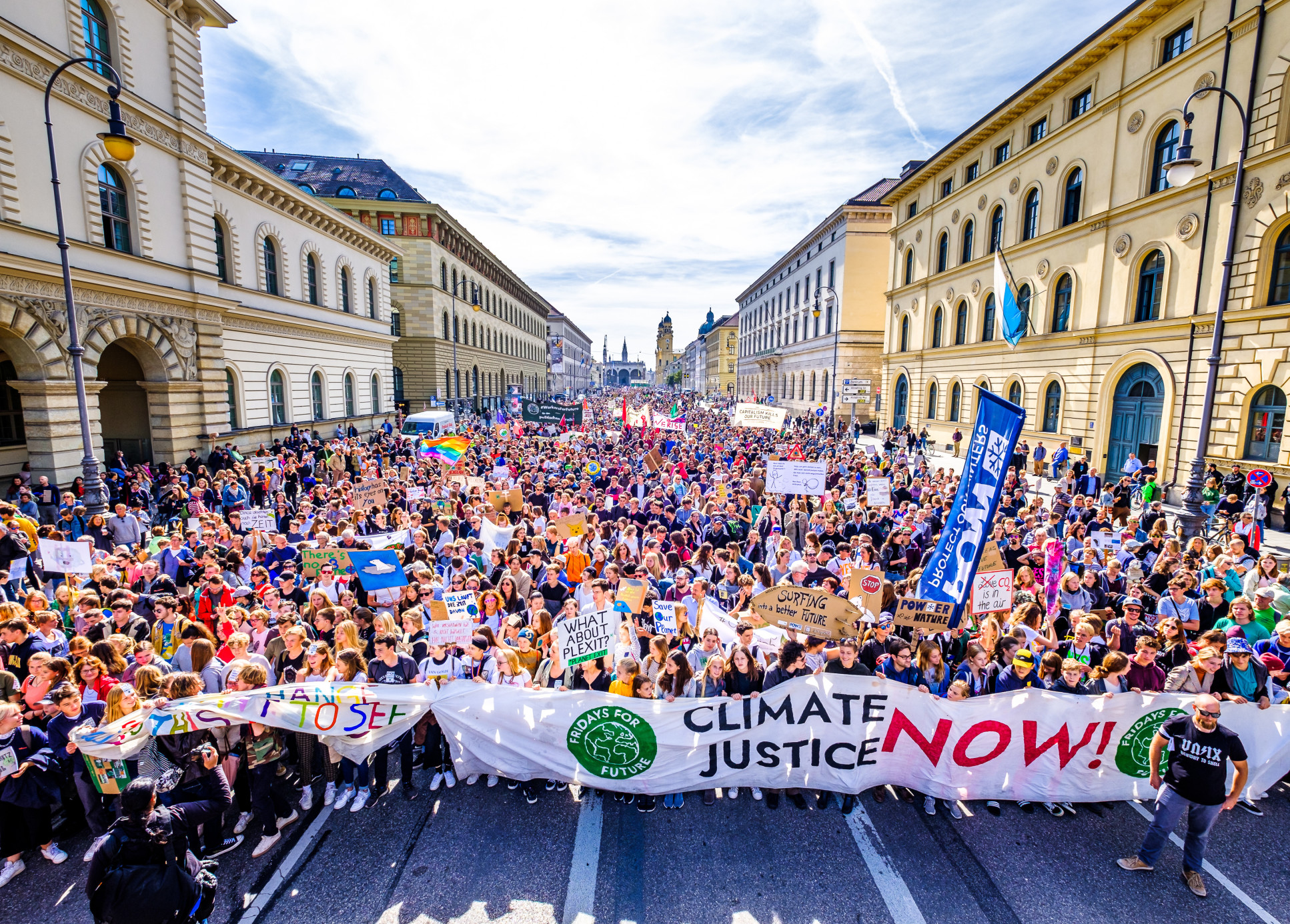Children will face huge increases in extreme climate events in their lifetimes

Children born today will face disproportionate increases in floods, heatwaves, droughts, wildfires, and crop failures due to climate change.
A new analysis published today in Science shows that under current climate policy, newborns across the globe will on average face seven times more scorching heatwaves during their lives than their grandparents.
The consequence of children suffering unprecedented sequences of climate extremes over the course of their lives can now be attributed to the inaction of today's adults. Dr Joeri Rogelj
In addition, they will on average live through 2.6 times more droughts, 2.8 times as many river floods, almost three times as many crop failures, and twice the number of wildfires as people born 60 years ago.
However, hitting the Paris Agreement goal of limiting warming to 1.5°C above pre-industrial temperatures, instead of following current policy pledges that place the world on a course for more than 3°C of warming substantially reduces the intergenerational burden for extreme heatwaves, wildfires, crop failures, droughts, tropical cyclones, and river floods.
Fundamental injustice
The study was led by Vrije Universiteit Brussel (VUB) and an international team of researchers from institutions including Imperial College London and the University of Nottingham. Co-author Dr Joeri Rogelj, from the Grantham Institute – Climate Change and the Environment at Imperial, said: “With this study we lay bare the fundamental injustice of climate change across generations, as well as the responsibilities of today's adults and elders in power.
“The consequence of children suffering unprecedented sequences of climate extremes over the course of their lives can now be attributed to the inaction of today's adults. It also shows how much can be gained by ambitious emissions reductions.”
The team quantified lifetime exposure to droughts, heatwaves, crop failures, river floods, tropical cyclones, and wildfires. They computed lifetime exposure for every generation born between 1960 and 2020, for every country in the world, and for every global warming scenario between today’s 1°C and 3.5°C above pre-industrial temperatures.

The team also compared the increase in extreme event exposure of population cohorts living today with a reference person that would have lived under the pre-industrial climate conditions of the end of the 19th Century.
The results show that for a 3°C global warming pathway, a six-year-old in 2020 will experience twice as many wildfires and tropical cyclones, three times more river floods, four times more crop failures, five times more droughts, and 36 times more heatwaves. Under a 3.5°C warming scenario, children born in 2020 will experience 44 times more heatwaves.
Even at and above 1.5°C of warming, lifetime exposure to heatwaves, crop failures, droughts, and river floods for people born after 1980 exceeds pre-industrial climate conditions, showing some changes are already locked in.
Lead author Professor Wim Thiery from VUB said: “This basically means that people younger than 40 today will live an unprecedented life even under the most stringent climate change mitigation scenarios. Our results highlight a severe threat to the safety of young generations and call for drastic emission reductions to safeguard their future.”
Youth action
The impacts are also strongly regional, with children growing up in the worst-hit areas facing a more than fivefold increase in overall lifetime extreme event exposure. While 53 million children born in Europe and Central Asia since 2016 will experience about four times more extreme events under current pledges, 172 million children of the same age in sub-Saharan Africa face an almost sixfold increase in lifetime extreme event exposure, and even 50 times more heatwaves.
The Fridays for Future movement led by the world’s youth has drastically increased awareness around the importance of climate change mitigation for future generations. Next to school strikes and protest marches, young people are now also suing their governments, for instance for violating their fundamental rights under the United Nations Committee on the Rights of the Child.

Co-author Simon Gosling, Professor of Climate Risk at the University of Nottingham, said: “Our research shows very clearly the responsibility that the current generation holds for future generations in terms of climate change. We’re already seeing extreme events that are attributable to human climate change across the world, like heat waves, floods and forest fires.
“We show that children will be affected to a greater extent by such events over their lifetime compared to people who are older now. We have to turn a sharp corner if we want to limit the intergenerational impacts of climate change. In this respect, the setting of more ambitious greenhouse gas emissions reduction targets at the UN climate conference in Glasgow in November this year is going to be crucial.”.
The new study is accompanied by a report by international charity Save the Children, titled ‘Born Into the Climate Crisis’, which highlights why we need to act now to secure children’s rights. The report recommends actions including recognising children as equal stakeholders and key agents of change, scaling up social protection systems, and taking bolder action to limit warming.
The study and report also come just before the UNFCCC Youth Summit, running from 28-30 September in Milan, and the COP26 climate change summit in Glasgow in November.
-
‘Intergenerational inequities in exposure to climate extremes – Young generations are severely threatened by climate change’ by Wim Thiery et al. is published in Science.
Top image: The aftermath of a typhoon in the Philippines. Credit: Asian Development Bank
Article text (excluding photos or graphics) © Imperial College London.
Photos and graphics subject to third party copyright used with permission or © Imperial College London.
Reporter
Hayley Dunning
Communications Division